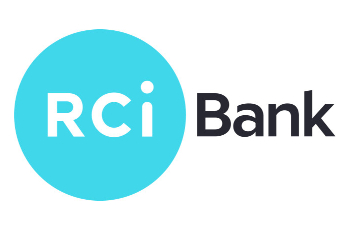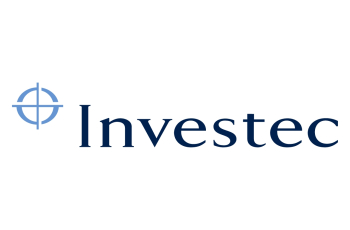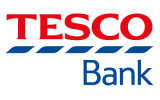This comparison simply includes all savings accounts.
Savings Accounts
Instant Access Best Buys
Leeds Building Society »
Leeds Building Society offer a very competitive instant access account.
- 4.41% AER/Gross pa (variable) interest rate
- Minimum deposit £1,000
- Interest is paid annually
- Unlimited payments and withdrawals
- Online account
- FSCS Protected
Quick online application setup from Leeds Building Society
RCI Bank »
RCI Bank also offer a very competitive instant access account.
- 4.25% AER/Gross pa (variable) interest rate
- Minimum deposit £1,000
- Interest is paid monthly or annually
- Unlimited payments and withdrawals
- Online account
- FSCS Protected
Quick online application setup from RCI Bank
Investec Bank »
Investec Bank offer a competitive instant access account.
- 4.20% AER/Gross pa (variable) interest rate
- Interest is paid monthly, either to linked bank account or adding back in
- Unlimited payments and withdrawals
- Minimum deposit - £5,000
- FSCS Protected
Quick online application setup from Investec Bank
Tesco Bank »
Tesco Bank also offer a competitive instant access account.
- 4.10% AER/Gross pa (variable) interest rate
- Low minimum deposit £1
- Interest is paid annually
- Unlimited payments and withdrawals
- After 12 months the rate will revert to the underlying rate, currently 1.15% gross/AER variable
- Online account
- FSCS Protected
Quick online application setup from Tesco Bank
Yorkshire Building Society »
Yorkshire Building Society offer an instant access account.
- 4.10% AER/Gross pa (variable) interest rate
- Minimum deposit £1
- Interest is paid annually
- Unlimited payments and withdrawals
- Online account
- FSCS Protected
Quick online application setup from Yorkshire Building Society
Post Office Savings »
Post Office Savings also offer a an instant access account.
- 4.05% AER/Gross pa (variable) interest rate
- Low minimum deposit £1
- Interest is paid monthly or annually
- Unlimited payments and withdrawals
- After 12 months the rate will revert to the underlying rate, currently 1.55% gross/AER variable
- Online account
- FSCS Protected
Quick online application setup from Post Office Savings
Hampshire Trust Bank »
Hampshire Trust Bank also offer an instant access account.
- 3.50% AER/Gross pa (variable) interest rate
- Interest is paid annually
- Unlimited payments and withdrawals
- Online account
- FSCS Protected
Quick online application setup from Hampshire Trust Bank
Fixed Rate Best Buys
Investec Bank 1 Year Fixed Rate Bond »
- Fixed 1 Year 4.30% at time of writing
- Interest paid at maturity
- Minimum deposit - £5,000
- FSCS Protected up to £85,000
Quick online application from Investec Bank
RCI Bank 1 Year Fixed Rate Bond »
- Fixed 1 Year 4.30% at time of writing
- Interest paid monthly or at maturity
- Open in single or joint name
- Minimum deposit - £1,000
- FSCS Protected up to £85,000
Quick online application from RCI Bank
RCI Bank 2 Year Fixed Rate Bond »
- Fixed 2 Year 4.40% at time of writing
- Interest paid monthly or annually
- Open in single or joint name
- Minimum deposit - £1,000
- FSCS Protected up to £85,000
Quick online application from RCI Bank
Investec Bank 2 Year Fixed Rate Bond »
- Fixed 2 Year 4.35% at time of writing
- Interest paid annually
- Minimum deposit - £5,000
- FSCS Protected up to £85,000
Quick online application from Investec Bank
RCI Bank 3 Year Fixed Rate Bond »
- Fixed 3 Year 4.45% at time of writing
- Interest paid monthly or annually
- Open in single or joint name
- Minimum deposit - £1,000
- FSCS Protected up to £85,000
Quick online application from RCI Bank
Investec Bank 3 Year Fixed Rate Bond »
- Fixed 3 Year 4.35% at time of writing
- Interest paid annually
- Minimum deposit - £5,000
- FSCS Protected up to £85,000
Quick online application from Investec Bank
Hampshire Trust Bank 5 Year Fixed Rate Bond »
- Fixed 5 Year 4.05% at time of writing
- Interest paid annually
- Minimum deposit - £1
- FSCS Protected up to £85,000
Quick online application from Hampshire Trust Bank
RCI Bank 5 Year Fixed Rate Bond »
- Fixed 5 Year 3.80% at time of writing
- Interest paid monthly or annually
- Open in single or joint name
- Minimum deposit - £1,000
- FSCS Protected up to £85,000
Quick online application from RCI Bank
Current Account's
Santander Everyday Account »
Fee free account for everyday needs.
- No minimum monthly funding
- No monthly fee
- Get cashback, vouchers, prize draws and other offers personalised to you when you use Santander Boosts
- Mobile banking app
- Arrange overdraft facility available (subject to status)
- FSCS Protected
For more information and to apply for Santander Everyday Account
Santander Edge Up Account »
3.00% AER interest on balances up to £25,000 and cashback available.
- 3.00% AER/3.45% gross (variable) on balances up to £25,000
- 1% cashback (up to £15 a month) on selected household bills when you pay by Direct Debit
- 1% cashback (up to £15 a month) at supermarkets and on travel costs when you use your debit card (exclusions apply)
- Make international payments with no extra fees
- £5 monthly fee
- Must pay a minimum of £1,500 into the account each month
- Arranged overdraft facility (subject to status)
- FSCS Protected
For more information and to apply for Santander Edge Up Account
Most people want to earn the highest possible rate of interest on their savings, but it’s not always obvious what the best way to do this is. There are various different options for where to put your savings to earn interest, and which option you should choose will depend on various factors.
When thinking about what kind of savings account to use, ask yourself:
- How much do you have in savings?
- What level of interest would you like to earn?
- What level of risk are you willing to take with your savings?
- Are you likely to need your savings in the near future?
Once you know the answers to these questions, it should be easier to identify which type of savings account will best suit your needs. Below are some of the most common kinds of accounts used for savings, one or more of which may be the ideal solution for your saving requirements.
Current Accounts
Many savers don’t realise that current accounts often pay some of the highest interest rates on the market. It is therefore usually a good idea to keep at least some of your savings in your current account to get the best overall rate of return.
Current accounts usually have a fairly low threshold above which they pay no interest, however, so if you have significant savings you will usually need to find another option for the balance to avoid missing out.
Easy Access Savings Accounts
Easy access savings accounts usually come with variable interest rates and allow you to add or withdraw money whenever you like. They don’t necessarily pay the most competitive rates, but are great for those who want the option to save with flexibility. They usually pay interest on much larger balances than current accounts.
Notice Savings Accounts
Similar to easy access savings accounts, except that they usually offer slightly better interest rates in exchange for you having to give the bank a set amount of notice before withdrawing funds. Notice periods vary, but 30, 60, 90 and 120 days are common.
Fixed Rate Bonds
Fixed rate bonds offer guaranteed rates of interest in exchange for agreeing not to touch your savings for a set period. They usually last for 1, 2, 3 or 5 years and some will allow you to withdraw your money early in exchange for a penalty fee.
ISAs
ISAs allow you to earn interest on your savings tax free on deposits up to a threshold decided each year by the UK government. For the 2017/2018 tax year, the limit is £20,000. There are various types of ISAs, including those offering both fixed and variable rates, plus various specialist ISAs.
Compare all high interest savings accounts
With so many different types of savings accounts and lenders to choose from, knowing where the best place to put your savings can be difficult.
The savings account comparison table at the top of this page lets you quickly and easily compare top savings accounts from all the leading providers. This offers a simple way to find the best deal for you, allowing you to start earning a good rate of return on your savings.
For more help on deciding how to actually chose a savings account, read our guide below:
How to Decide on the Best Savings Account in the UK
Let's face it, making sense of the world of personal finance can be tricky. But don't worry, we're here to make it easier for you. In this guide, we'll help you understand everything you need to know about savings accounts, and how to choose the best one for your needs in the UK.
Introduction to Savings Accounts
So, you've heard the term "savings account" being thrown around a bit and you're wondering what it's all about. Well, let's clear things up.
What is a Savings Account?
A savings account is a kind of bank account where you can put money that you don't need right away. It's a safe place to store your money, and the best part? Your money grows over time!
That's right! When you put your money in a savings account, the bank pays you a little extra over time, known as interest. Think of it as a thank you from the bank for letting them hold onto your money.
Importance of Having a Savings Account
You might be thinking, "Why do I need a savings account? Why can't I just keep all my money in a current account?" Well, there are a few good reasons:
- Grow your money: As we mentioned before, savings accounts pay you interest. This helps your money grow over time, helping you reach your financial goals faster.
- Safety: Savings accounts are one of the safest places to keep your money. In the UK, the Financial Services Compensation Scheme (FSCS) protects up to £85,000 of your money in case the bank goes bust.
- Plan for the future: Whether it's for an emergency fund, a holiday, a new car, or a deposit on a house, having a savings account can help you plan for future expenses.
- Develop good habits: Regularly putting money into a savings account can help you develop good saving habits. It's a step towards financial responsibility and independence.
In the next section, we'll dive into the different types of savings accounts available in the UK, helping you figure out which one suits your needs best. But remember, the perfect savings account for you depends on your personal financial goals and circumstances.
Understanding Different Types of Savings Accounts
Right, so we've established that a savings account is a brilliant way to stash away your hard-earned cash. But did you know there are different types of savings accounts?
Regular Savings Accounts
Let's start with arguably the simplest one, Regular Savings Accounts. These accounts are pretty straightforward. You deposit money into the account, and the bank pays you interest on it. The key thing is you're expected to deposit money regularly (usually every month), and there's often a limit to how much you can put in each month.
These accounts can be a good choice if you're looking to save a bit each month and can commit to regular deposits.
Instant Access Savings Accounts
Next up, we have Instant Access Savings Accounts. These are super flexible. You can add or withdraw money whenever you fancy, without any penalties. The trade-off? They usually offer lower interest rates compared to other types of savings accounts.
So, if you want a savings account that's as flexible as a yoga teacher, but don't mind the lower interest rates, then an instant access savings account could be the one for you!
Fixed Rate Savings Accounts
Now, let's talk about Fixed Rate Savings Accounts. These accounts offer a fixed interest rate for a certain period (typically one to five years). The interest rate is usually higher than other types of savings accounts, but there's a catch. You can't access your money during the fixed term without paying a penalty.
If you're confident that you won't need to dip into your savings for a while, a fixed rate savings account could be a great way to grow your money.
Tax-free Savings Accounts (ISAs)
Moving on, we have Tax-free Savings Accounts, also known as Individual Savings Accounts (ISAs). With these accounts, you won't have to pay any tax on the interest you earn. There's a limit to how much you can put into an ISA each year (for the 2023/2024 tax year, it's £20,000).
If you're looking to save money without sharing a slice of your interest with the taxman, ISAs could be a good choice!
Children's Savings Accounts
Finally, there are Children's Savings Accounts. These accounts are for the little ones under 18. They usually offer higher interest rates than adult accounts. Plus, they're a fantastic way to teach kids about the importance of saving money.
Each type has its perks and drawbacks, and the best one for you depends on your personal circumstances and savings goals. In the next section, we'll look at the key factors to consider when choosing a savings account.
Key Factors to Consider When Choosing a Savings Account
So, we've explored the different types of savings accounts available in the UK. But how do you decide which one to go for? Well, there are several factors to think about when picking the perfect savings account for you.
Interest Rates
The interest rate is probably the first thing you'll look at when comparing savings accounts. Simply put, it's the amount of money the bank pays you for storing your money in their savings account. The higher the interest rate, the more your money will grow over time.
Bear in mind, though, that the highest interest rate isn't always the best. You'll need to consider other factors like access to funds, account fees, and the bank's reputation as well.
Access to Funds
Next, consider how often you'll need to access your money. If you think you might need to dip into your savings now and then, an Instant Access Savings Account would be a good fit. But if you're confident you won't touch the money for a while, a Fixed Rate Savings Account might be a better option.
Minimum Deposit Requirement
Some savings accounts require a minimum deposit to open the account. Make sure you're comfortable with this amount before you decide to open the account.
Account Fees
Look out for any fees associated with the account. Some banks charge monthly or annual fees, while others might charge you for certain transactions. Make sure you understand any potential costs before you sign up.
Customer Service and Accessibility
Don't forget about customer service and accessibility. It's essential to choose a bank that offers excellent customer service and multiple ways to access your account, like online banking, mobile apps, and physical branches.
Financial Institution's Reputation
The reputation of the financial institution is another crucial factor. You'll want to choose a bank that's trustworthy and has a good track record.
Additional Benefits
Finally, keep an eye out for any additional benefits. Some banks offer perks like cash bonuses for opening an account, higher interest rates for larger deposits, or extra services like financial advice.
In the end, choosing the best savings account comes down to finding a balance between these factors that suits your personal financial goals and circumstances. There's no one-size-fits-all answer, but with a bit of research, you'll find the right fit.
How to Open a Savings Account in the UK
So, you've decided you want to open a savings account. Brilliant! But what's the next step? Here's a simple guide on how to open a savings account in the UK, whether you prefer to do it online or in person.
Required Documents and Information
First things first, you'll need some documents and information to open a savings account. Here's what you'll typically need:
- Proof of identity: This could be a passport or a UK driving licence.
- Proof of address: This might be a utility bill or a council tax bill.
- National Insurance number: You can find this on your payslip or your tax return.
- Personal information: This includes your full name, date of birth, and contact details.
It's a good idea to have these items on hand before you start the application process to make things run smoothly.
Online Application Process
Opening a savings account online is a breeze. Here's how you do it:
- Visit the bank's website.
- Choose the type of savings account you want to open.
- Click on the 'Apply Now' button (or something similar).
- Fill in the application form with your personal information.
- Upload or provide the required documents.
- Agree to the terms and conditions, then submit your application.
Voila! You've applied for a savings account online. The bank will review your application and contact you with the next steps.
Offline Application Process
Here's how to open a savings account in person:
- Visit your chosen bank's branch. Don't forget to bring your required documents and information.
- Tell the bank representative that you want to open a savings account.
- They'll guide you through the application process, filling in the forms for you and answering any questions you might have.
- Once you've completed the application, the bank will process it and get your account set up.
And that's it! You've opened a savings account in person. The bank will give you all the details about your new account and how to use it.
Remember, opening a savings account is a big step towards managing your money effectively and reaching your financial goals. So, well done for taking this step!
Tips to Maximise Your Savings
You've navigated the maze of savings accounts and are ready to start your saving journey. But, how do you make the most of your savings account? Here are some top tips to help your savings grow.
Regularly Contribute to Your Savings Account
Consistency is key when it comes to saving. Aim to put a certain amount into your savings account each month. It doesn't have to be a lot – even a small amount can add up over time. Remember, it's not about the size of your savings, it's about the habit of saving regularly.
Consider Automating Your Savings
Speaking of habits, one of the easiest ways to make saving a regular part of your routine is to automate it. Most banks offer a feature that automatically transfers a set amount from your current account to your savings account each month. It's a hassle-free way to save without even thinking about it.
Regularly Review Your Savings Account Performance
It's important to keep an eye on how your savings account is performing. Are you earning as much interest as you expected? Are there any unexpected fees? Make sure your savings account is working hard for you, and don't be afraid to switch accounts if you find a better deal.
Remember, a savings account is more than just a place to store your money. It's a tool to help you reach your financial goals. So, use these tips to make the most of your savings account and watch your money grow.










